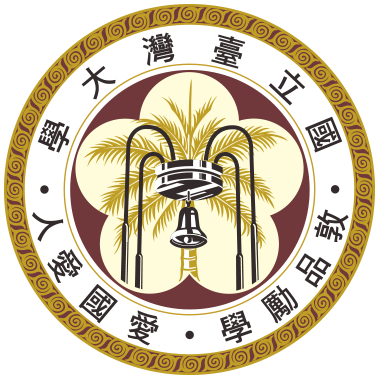- Name: Shih-Shun Lin
- Position: Professor, Institute of Biotechnology, National Taiwan University
- Host University: Kyoto University
- Research Partners: Prof. Shuhei Furukawa、Prof. Takayuki Kohchi
- Research topics: Plant Molecular Biology, Plant Molecular Virology, Plant Biotechnology
While for some scholars, applying for NTU International Collaboration Seed Funding is a great way to broaden their academic horizons and build new international collaborations, for others, like Prof. Shih-Shun Lin from the Institute of Biotechnology, it was a wonderful opportunity to further solidify existing academic partnerships.
Prof. Lin’s Laboratory of Plant Molecular Biology & Virology has been cooperating with Kyoto University’s Laboratory of Plant Molecular Biology for many years, and the results of this cooperation have been groundbreaking discoveries published in world-leading journals such as Plant & Cell Physiology. Therefore, after receiving an email from the NTU OIA with the details about the funding project, he didn’t think twice about who to choose as his partners for this project.
The second, but equally important, reason for applying for the funding was Prof. Lin’s strong belief that students often lack the necessary resources to engage in international academic exchange and should have such experiences as early as possible to succeed academically in the future. That is why he decided to take two of his students—one master's student and one postdoc—with him to Japan.
At Kyoto University, they were met by two of Prof. Lin’s long-standing partners, Takayuki Kohchi and Takashi Araki, from the Graduate School of Biostudies. As Prof. Lin explained, their joint research project focuses on land plants gene regulation using Marchantia polymorpha as a model organism. This approach allows them to learn more about plant survival strategies in changing global environments. Earlier this year, Prof. Lin visited their laboratory to discuss future research plans. This time, they followed up on the progress they had made and participated in a series of academic conferences and meetings. One of the students mentioned that she was really surprised by the diligence and devotion of the Japanese students: “All of them had a deep understanding of their research topics and paid attention to the smallest details—engaging in discussions with them was truly encouraging.” She also realized the importance of foreign languages as a key to communication and future career development.
Prof. Lin also observed this aspect of the Japanese mentality: in comparison to Taiwan, the atmosphere in their host lab is more “serious,” with less space for informal interaction between students and their advisors. Regarding the equipment, while its quality is quite high in both universities, it is not identical; thus, they can share their research findings, making the cooperation complementary and mutually beneficial.

Prof. Lin's student noted that it was interesting to observe the differences in interactions between Japanese students and their advisors.
Despite a tight schedule, Prof. Lin and his students also found time to explore the historic landmarks of Kyoto. He shared with us that he has actually been here more than 30 times and especially enjoys exploring local antique shops, where you can find three- or four-hundred-year-old tableware for only a few dollars. However, having a local guide is a completely different experience—Prof. Takashi Araki took them to some ancient temples, where they could enjoy breathtaking views and immerse themselves in history without the hordes of tourists spoiling the moment.

Enchanting Views from Rurikō-in Temple.
Overall, reflecting on his time at Kyoto University, Prof. Lin shared that the whole trip it felt like "seeing an old friend." He believes that the NTU International Collaboration Seed Funding can help NTU scholars feel more confident when planning future international research projects. “With this fund, I don’t feel as restrained when writing research proposals for my partners abroad. I can even invite them to come to my lab without worrying about funding.” As one of the first grantees, he’s sure that as more people apply, the competition will increase. Therefore, he advises future applicants to choose a research partner and discuss all the details of their plans in advance, so that their proposals can be more persuasive to the commission.
NTU OIA encourages other scholars to make the most of this opportunity and apply for the NTU International Collaboration Seed Funding to showcase Taiwan's vibrant academic landscape to the world.


